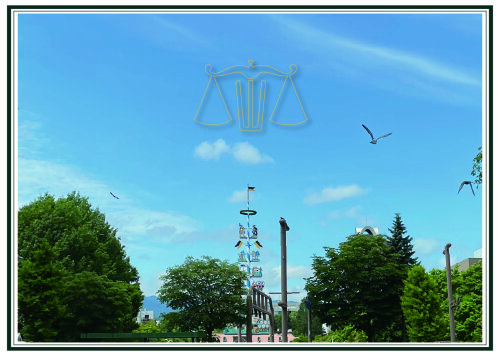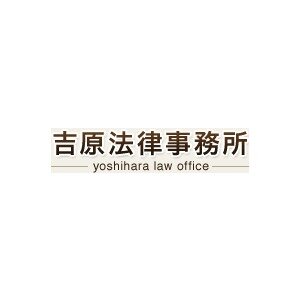Best Workers Compensation Lawyers in Sapporo
Share your needs with us, get contacted by law firms.
Free. Takes 2 min.
List of the best lawyers in Sapporo, Japan
About Workers Compensation Law in Sapporo, Japan
Workers' Compensation in Sapporo, Japan is designed to provide benefits to workers who suffer work-related injuries or illnesses. Under the Industrial Accident Compensation Insurance Law, commonly referred to as "Rōsai," employers are required to enroll in a government-operated insurance program. This program ensures that workers who have been injured on the job or who have developed an occupational disease receive medical care and financial support. The system covers medical expenses, time off work, disability benefits, and, in extreme cases, funeral costs.
Why You May Need a Lawyer
There are several situations where seeking legal advice regarding Workers' Compensation can be beneficial. If your claim has been denied, if you have a dispute about the level of benefits received, or if you're dealing with a complex case involving multiple parties or severe injuries, a lawyer can guide you. Additionally, if you believe your employer is not following the law or retaliating against you for filing a claim, a lawyer can help you navigate the process and protect your rights.
Local Laws Overview
Workers' Compensation laws in Sapporo, as in the rest of Japan, are governed by national legislation, with the Industrial Accident Compensation Insurance Law at the forefront. This law covers all businesses that employ at least one worker. Key aspects include compulsory insurance for employees, regardless of the size of the business, full coverage of medical expenses for work-related injuries or diseases, disability compensation, and dependents' benefits. Prevention measures are also a focus, and employers are required to take steps to ensure a safe working environment to prevent accidents and illnesses.
Frequently Asked Questions
1. What type of injuries or illnesses are covered by Workers' Compensation in Sapporo?
All injuries or illnesses that occur during the course of employment or as a direct result of work-related activities are covered. This includes acute injuries from accidents, as well as chronic illnesses developed over time due to work conditions.
2. How do I file a Workers' Compensation claim in Sapporo?
To file a claim, you need to report your injury or illness to your employer, who will then notify the Labor Standards Inspection Office and submit necessary documentation to the Workers' Accident Compensation Insurance.
3. How long do I have to report a work-related injury?
It is important to report the injury to your employer immediately. There are specific time limits for notification and for filing a claim, so prompt reporting is crucial for receiving benefits.
4. Can I see my own doctor for a work-related injury or illness?
Yes, you have the right to choose your doctor. However, for the cost to be covered by Workers' Compensation, the medical provider must be approved by the Workers' Accident Compensation Insurance system.
5. What if my claim is denied?
If your claim is denied, you have the right to appeal the decision. Consulting with a lawyer specialized in Workers' Compensation can be very beneficial in this scenario to understand your options and guide you through the appeals process.
6. Are mental health issues covered under Workers' Compensation in Sapporo?
Yes, mental health issues, if proven to be a result of work-related circumstances, can be covered under Workers' Compensation, but such cases may require additional evidence and documentation.
7. How long does it take to receive Workers' Compensation benefits?
The time frame varies depending on the specifics of the case, but once a claim is approved, benefits are typically paid out quickly to aid the injured worker.
8. What happens if I can't return to my previous job?
If a work-related injury or illness prevents you from returning to your previous role, you might be entitled to job retraining, career counseling, or other support aimed at helping you re-enter the workforce.
9. Are part-time and temporary workers eligible for Workers' Compensation?
Yes, in Japan, all workers, including part-time and temporary employees, are covered under the Workers' Compensation system. Employers are required to enroll all employees, irrespective of their contract type.
10. Can I claim Workers' Compensation if the injury occurred while working from home?
As the nature of workplaces evolves, injuries that occur while working from home may be covered if they can be directly linked to the execution of work-related duties.
Additional Resources
For further assistance, you can reach out to the Labor Standards Inspection Office in your area or the Japan Federation of Bar Associations, which can offer guidance and help you find a lawyer specialized in Workers' Compensation law. The Japan Pension Service also provides information on Workers' Accident Compensation Insurance benefits.
Next Steps
If you need legal assistance with your Workers' Compensation case, your first step should be to collect all relevant information, including medical documentation and a detailed account of the incident. Next, you should consult with a lawyer who has expertise in Workers' Compensation law to discuss your case and plan your course of action. Remember, acting promptly can be crucial to the success of your claim.
Lawzana helps you find the best lawyers and law firms in Sapporo through a curated and pre-screened list of qualified legal professionals. Our platform offers rankings and detailed profiles of attorneys and law firms, allowing you to compare based on practice areas, including Workers Compensation, experience, and client feedback.
Each profile includes a description of the firm's areas of practice, client reviews, team members and partners, year of establishment, spoken languages, office locations, contact information, social media presence, and any published articles or resources. Most firms on our platform speak English and are experienced in both local and international legal matters.
Get a quote from top-rated law firms in Sapporo, Japan — quickly, securely, and without unnecessary hassle.
Disclaimer:
The information provided on this page is for general informational purposes only and does not constitute legal advice. While we strive to ensure the accuracy and relevance of the content, legal information may change over time, and interpretations of the law can vary. You should always consult with a qualified legal professional for advice specific to your situation.
We disclaim all liability for actions taken or not taken based on the content of this page. If you believe any information is incorrect or outdated, please contact us, and we will review and update it where appropriate.










